Study advances efforts to harness drug’s mind-altering power to treat mental illness
Psilocybin generates psychedelic experience by disrupting brain network


Study advances efforts to harness drug’s mind-altering power to treat mental illness

Howard Hughes Medical Institute honors duo’s research

Clinical trial for RVCL-S patients tests drug already approved as sickle cell disease treatment

Morby prize from Cure Alzheimer’s Fund honors discovery of T cells’ role in neurodegeneration

Abhinav Diwan, MD, a highly regarded cardiologist with expertise in the molecular underpinnings of cardiovascular disease, has been named the inaugural Charlie W. Shaeffer, MD, Professor of Cardiology at Washington University School of Medicine in St. Louis. Diwan was installed by David H. Perlmutter, MD, executive vice chancellor for medical affairs, the George and Carol […]

Three physician-scientists at Washington University School of Medicine in St. Louis have been newly elected to the Association of American Physicians. Membership in the organization is an honor bestowed on physicians who lead innovative scientific research to improve health care. They are Patricia I. Dickson, MD, Dineo Khabele, MD, and Gregory D. Longmore, MD. Dickson, the Centennial Professor […]
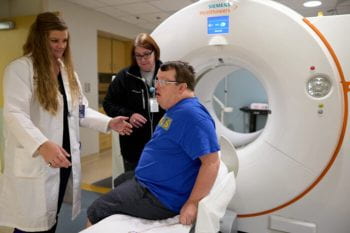
Study highlights need to develop therapies for this vulnerable population

Popular alternative to CPAP machines may not be appropriate for all
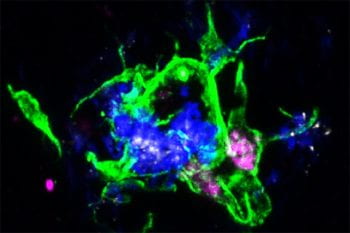
Alzheimer’s disease starts with a sticky protein called amyloid beta that builds up into plaques in the brain, setting off a chain of events that results in brain atrophy and cognitive decline. The new generation of Alzheimer’s drugs — the first proven to change the course of the disease — work by tagging amyloid for […]
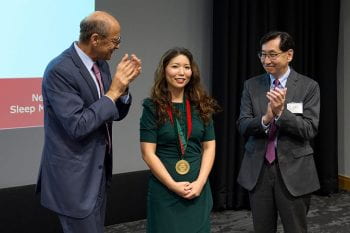
Neurologist studies role of sleep in neurodegenerative diseases
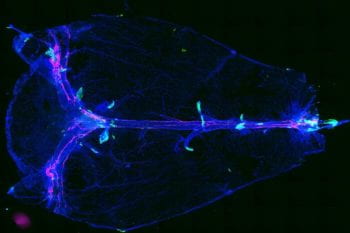
Discovered route serves as passageway to clear fluid waste from brain
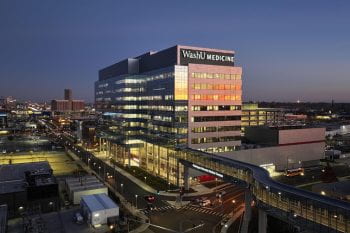
Dozens of noted scientists, philanthropists, and university, state and local leaders gathered Jan. 18 to celebrate the dedication of one of the world’s largest neuroscience research buildings, a gleaming state-of-the-art facility on the Washington University Medical Campus. They toured its sophisticated, newly christened labs; listened intently as Washington University scientists described the lifesaving work they […]
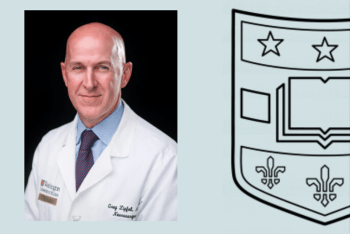
Honor named after mentor, former head of neurosurgery department
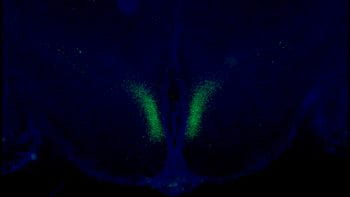
Brain cells communicate with fat tissue to produce cellular fuel, counteract effects of aging
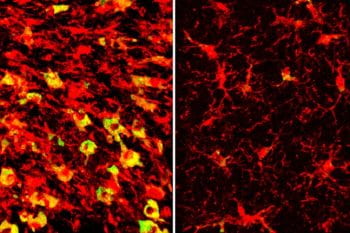
Targeting cholesterol potentially could help treat Alzheimer’s, related dementias

Grant to support research on neurodegenerative disorders
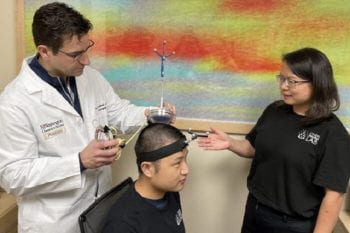
FDA grants WashU-based technology ‘Breakthrough Device’ designation
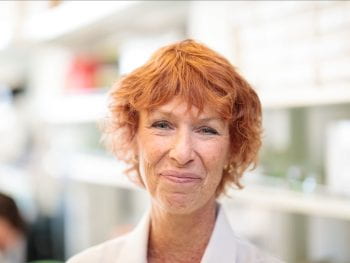
Recognized for work on fluid biomarkers for Alzheimer’s
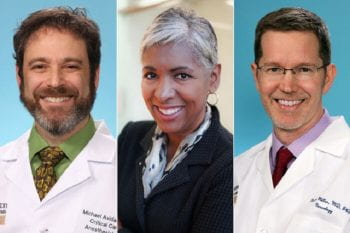
Membership is one of highest U.S. honors in health and medicine

One of 3 researchers honored for their research on how microbiomes function
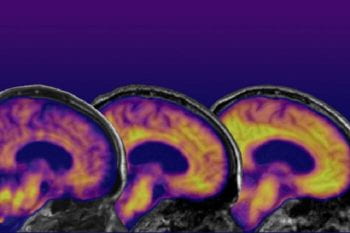
This episode of ‘Show Me the Science’ focuses on approval of a drug that attacks a key protein that contributes to dementia from Alzheimer’s disease
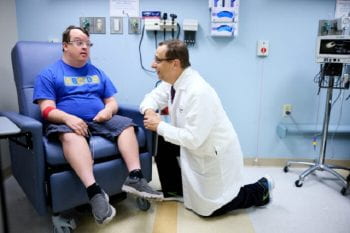
Nearly every person with Down syndrome eventually develops Alzheimer’s disease, yet people with the syndrome routinely are excluded from Alzheimer’s clinical trials, as the cognitive assessment tools designed for the general population often are inappropriate for people with developmental disabilities. Consequently, nobody knows whether the new Alzheimer’s therapeutics hitting the market will work for people […]
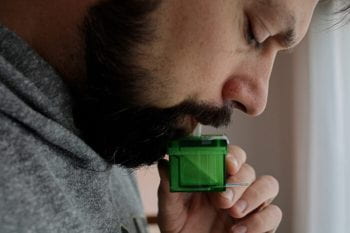
Test results available in less than a minute
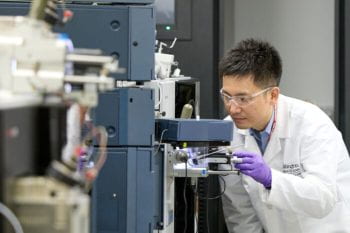
Two pathologies drive the progression of Alzheimer’s disease. Early on, amyloid beta plaques lead the way, but around the time cognitive symptoms arise, tau tangles take over as the driving force and cognition steadily declines. Tracking the course of the disease in individual patients has been challenging because there’s been no easy way to measure […]
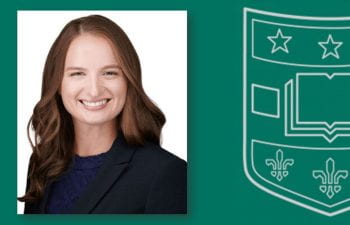
Grant will support research on brain plasticity
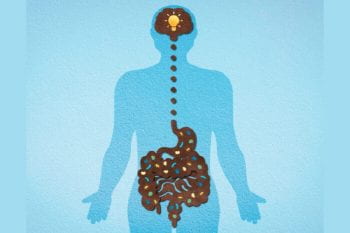
People in the earliest stage of Alzheimer’s disease — after brain changes have begun but before cognitive symptoms become apparent — harbor an assortment of bacteria in their intestines that differs from the gut bacteria of healthy people, according to a study by researchers at Washington University School of Medicine in St. Louis. The findings, […]
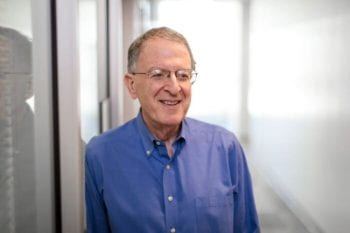
Microbiome pioneer Jeffrey I. Gordon, MD, of Washington University School of Medicine in St. Louis, has won the 2023 Princess of Asturias Award for Technical and Scientific Research. The Asturias awards, among the most prestigious honors in the Spanish-speaking world, are presented annually in eight categories. The awards are designed to recognize exceptional scientific, technical, cultural, […]

Diabetes researchers at Washington University School of Medicine in St. Louis have uncovered at least one reason insulin-secreting cells made from stem cells in the lab don’t work as well as natural cells. The discovery could help speed progress toward making insulin-secreting cells — called islet beta cells — more effective in the treatment of […]
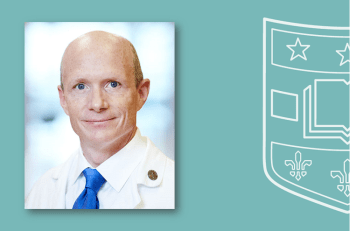
Recognized for contributions to Alzheimer’s disease research
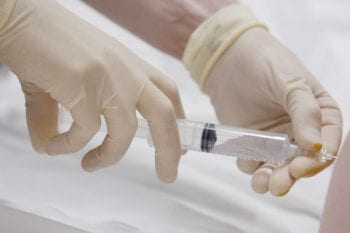
A new drug has been approved by the Food and Drug Administration (FDA) for a rare, inherited form of amyotrophic lateral sclerosis (ALS), a paralyzing neurological disease. Known as tofersen, the drug has been shown to slow progression of the deadly disease. International clinical trials of tofersen, developed by the global biotechnology company Biogen Inc., […]

More research needed to determine if sleep medications prevent, delay Alzheimer’s

Findings could lead to universal therapies for alcohol, tobacco, cannabis, opioid addictions
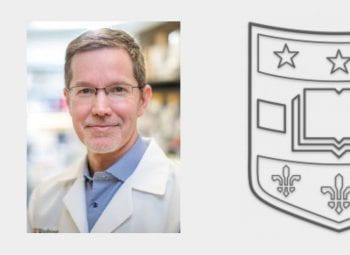
Honored for work developing new kind of therapy for neurodegenerative diseases

‘Father of the field’ honored for gut microbiome research
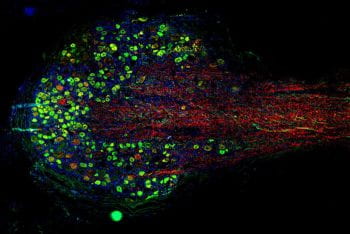
Funding from NIH HEAL Initiative
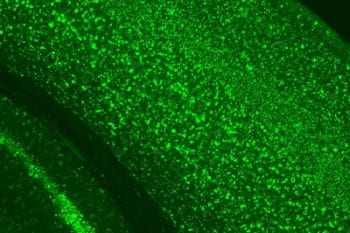
Enzyme replacement therapy, in mice and sheep, slowed brain degeneration
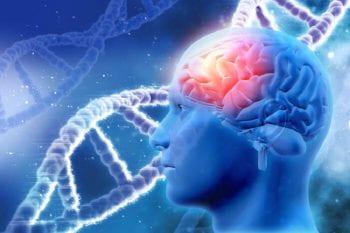
Researchers from several labs to study role of transposable elements

Recognizes scientist’s contributions to Alzheimer’s disease research
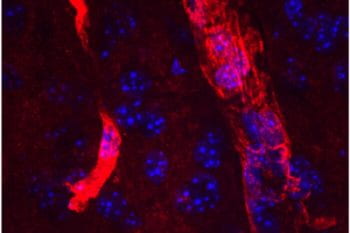
Could aid efforts to find treatments for Alzheimer’s, other diseases

‘We are all doing important work’
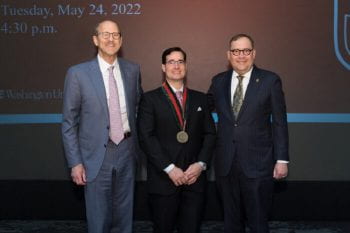
Carlos Cruchaga, PhD, a pioneer in the use of human genomic data to understand and elucidate the biology of neurodegenerative diseases such as Alzheimer’s disease, has been named an inaugural Barbara Burton and Reuben M. Morriss III Professor at Washington University School of Medicine in St. Louis. Cruchaga was installed by Chancellor Andrew D. Martin […]
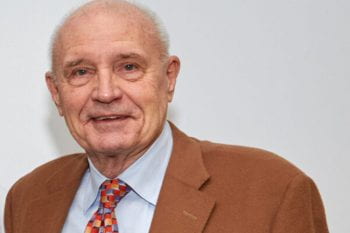
The American Society of Hematology has honored John Atkinson, MD, the Samuel Grant Professor of Medicine at Washington University School of Medicine in St. Louis, for his significant contributions to the field of hematology. He is one of two recipients of the Ernest Beutler Lecture and Prize and is recognized for breakthroughs that have advanced understanding […]

Neuroscience leaders and other faculty and staff at Washington University School of Medicine in St. Louis got an up-close look at the Neuroscience Research Building during a recent tour of the construction site. The framework of all 11 stories has been built, and the process of wrapping the building in glass is underway. On the […]

A new study from Washington University School of Medicine in St. Louis demonstrates that certain human gut microbes can mine dietary fiber to extract nutrients that otherwise would remain inaccessible to the human body. The study, published June 27 in the journal Cell, illustrates how the fiber byproducts of food production — such as rinds, peels […]
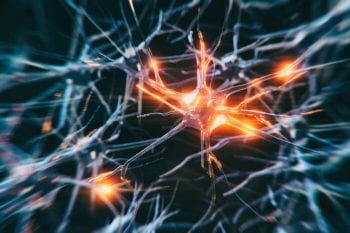
Hyperactive neurons drive tumor growth in NF1 cancer predisposition syndrome
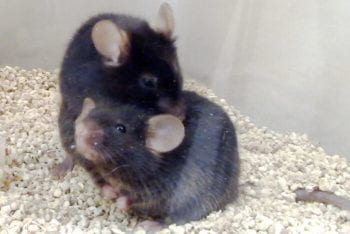
Similar to itch, pleasant touch transmitted by specific neuropeptide and neural circuit

New data prompts reconsideration of decades-old theory about brain injury due to stroke

3 of 4 tests performed inconsistently across racial groups

Diagnosing, treating sleep apnea may make driving safer for older adults
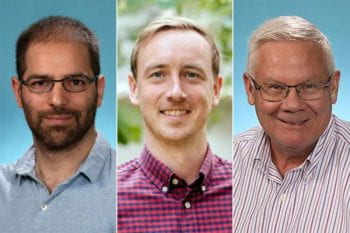
Kravitz, others honored by Office of Postdoctoral Affairs